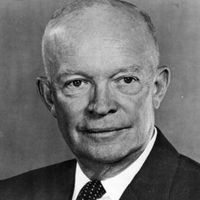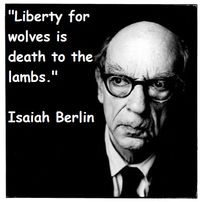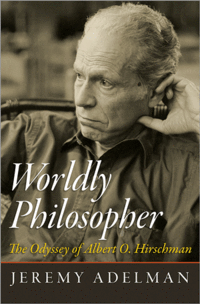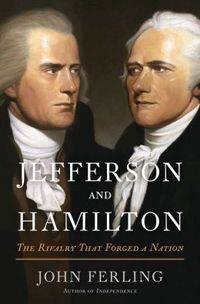Think of this as Volume 18, Number 24 of the newsletter I have written weekly since March, 1997. Enjoy.
 Most people practice a philosophy of false choices.
Most people practice a philosophy of false choices.
Every move to give poor people a break isn't socialism. Every effort to liberate capital isn't fascism. Every expansion of the First Amendment doesn't necessarily mean anarchy, or a religious dictatorship.
But that's the way it's portrayed, in our media, by our politicians, and in our online forums.
This is particularly true on the right today, and as I've said it is for good reason. When your worldview blows up in your face, the first instinct is to become more strident, not less. This was true for Democrats after they lost in 1968, and again after 1980. It takes time to accept change you didn't make, to say “yeah but” to it, to align with others in order to regain some semblance of power, until the other side collapses in its turn.
 This is what Dwight Eisenhower and Bill Clinton were about. It's what Woodrow Wilson and Grover Cleveland were about. The politics of “yeah-but,” the creation of an anti-thesis on which new power might be based, is a hard road.
This is what Dwight Eisenhower and Bill Clinton were about. It's what Woodrow Wilson and Grover Cleveland were about. The politics of “yeah-but,” the creation of an anti-thesis on which new power might be based, is a hard road.
What has never happened before is for a conservative thesis to accept defeat graciously. Liberals who feel rejected will just go away, they will get wrapped into their own trips and forget about politics for a while. The conservative nervous breakdown, by contrast, is far more violent.
The biggest untold truth of American history is that Republicans in the 1930s coddled Hitler. Some supported him openly, others merely said his rise wasn't our problem. They suggested fascists got the trains to run on time. They admired how his minority government could be turned into an absolute dictatorship through the administration of violence and propaganda.

Once that battle was “won,” in the 1960s, the white supremecist power structure simple recreated it, holding ghettoes together economically, with inferior public schools, and with “tough” law enforcement that today has one-third of southern black men unable to vote. Sure, a few blacks were let in, those who either seized what limited power was given to them, or who accomodated themselves to a white world. There is a black middle class, there is even a black upper class, but many of these people are just as divorced from the lives of the black majority as white folks are.
Absolutism – racial, religious, economic, political – doesn't go quietly into that good night. It abides, becomes even more-absolute, if that's possible. And, yes, it's always possible. Dachau is the proof.

It's the politics of muddling through. It's the economics of sifting whatever poor ore politicians may leave for the nuggets of hope from which new businesses can be born. I don't preach the perfectability of man. I have no illusions that we can ever become perfect. But our union can, slowly and steadily, become more perfect if we keep working at it. It's been going on for 230 years. I think it can continue.
Liberty, democracy and capitalism are my touchstones, but they are not absolutes. They can never be absolutes, because when they do they become dictatorships themselves.

Democracy only works when it, too, is limited, as liberty is limited, by law. By mutual respect. By institutions which provide checks and balances, not frustrating change but channeling it. We accept the verdicts of elections, but we limit what governments can do in the name of a democratic mandate. The system must be allowed to create change, but always within the bounds of what minorities, and a free press – which includes every citizen since we are all reporters on our own lives – will countenance.
Adam Smith wrote that free capital would incline the wealthy toward the common good. Alexander Hamilton sought a government by the “disinterested” – those whose own success had given them time to engage in the process. Thomas Jefferson rejected this, fearing oligarchy, and we live in a very Hamiltonian world whose extremists love to quote Jefferson at each other.
Keeping liberty, democracy and capitalism in balance is an ongoing, messy process. It requires enormous goodwill, on the part of the overwhelming majority. You don't get to overthrow the system and rule absolutely in the name of even these great ideals.
This is, unfortunately, not the kind of philosophy that is going to get people marching in the streets. It holds no end point. There is no perfection ahead. There is only the hard, steady march of progress, riddled with mistakes on every hand, but under a system that has a maximum of flexibility, that lets every citizen learn and participate to the extent they can. The greatest liberty to the extent possible, the most democracy people will tolerate and free markets bound by law and the common good, as we continually refine it.

It's not an easy road, because it doesn't provide any easy answers. But it is my philosophy. And this philosophy even has a name.
I call it America. Not Americanism, because it has no absolutes within it, save the absolute requirement that each citizen do their best to live up to these ideals, that they define those ideals for themselves, and that they try to work within the system when their ideals conflict with those of others.
It's not a philosophy at all. It is, rather, my un-philosophy.












Sharply writ; concisely taking on a wide sweep with clarity and responsibility.
As usual, sir 🙂
Sharply writ; concisely taking on a wide sweep with clarity and responsibility.
As usual, sir 🙂